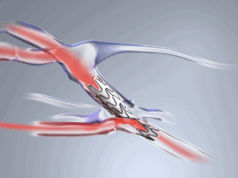 “The mortality rate for haemodialysis patients,” say the authors of a new study in Kidney Medicine, “remains unacceptably high.” Identifying interdialytic weight gain (IDWG) as a potential target for improving that rate, they considered ways to reduce it by allowing patients to better monitor their fluid intake. The solution they trialled in this research was a smartphone app for the management of fluid restriction.
“The mortality rate for haemodialysis patients,” say the authors of a new study in Kidney Medicine, “remains unacceptably high.” Identifying interdialytic weight gain (IDWG) as a potential target for improving that rate, they considered ways to reduce it by allowing patients to better monitor their fluid intake. The solution they trialled in this research was a smartphone app for the management of fluid restriction.
The authors, led by Michael V Rocco (Wake Forest University School of Medicine, Winston-Salem, USA), devised a pilot study to examine the effect on outcomes for a small cohort of 25 haemodialysis patients from using a novel app fluid intake monitoring app. From this cohort, 18 completed the full four-week study submitting all data from the app as well as answers to two qualitative surveys, with 56% male and 84% African American. Their median time on maintenance haemodialysis was three years.
Outlining the design of the app, Rocco and colleagues make clear that it is designed around “several behavioural change techniques”, including goal setting, action planning, self-monitoring, and feedback. The primary outcome of the study was the association between IDWG and fluid intake recorded in the app, while secondary outcomes included the safety of the app and its level of usage by the enrolled patients.
While the mean IDWG remained similar before and after the four-week period of using the app, the study authors found that 61% of patients experienced decreased IDWG compared to baseline. Seven patients used the app every day, while 13 used it on 80% or more days throughout the trial.
The findings “support behavioural intervention using a smartphone app”, Rocco et al say. The ability to use the app daily, as well as its ability to provide reminders and advice, supports patients by increasing their awareness of their treatment. They argue that their study benefits from its use of an app specifically designed for haemodialysis patients, while noting some limitations including its short duration and the enrolment of patients without large fluid gains—the latter of which they explain is “by design” as they were conducting a pilot safety study.
The authors note finally that a full-scale trial has been designed. It aims to determine “if the fluid intake app will help to limit body weight gains between haemodialysis sessions in patients identified to have large IDWG”.










